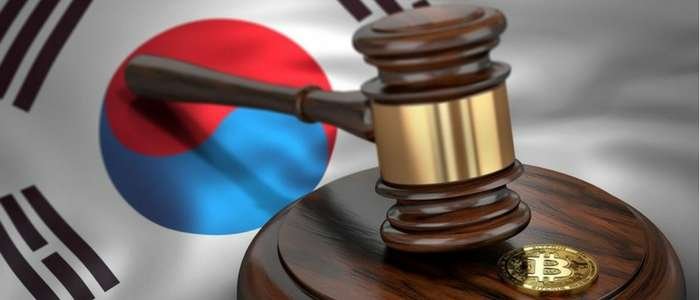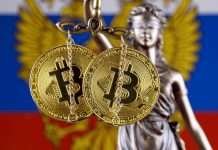
South Korea has set a deadline for the anonymous cryptocurrency exchanges’ ban for January 30.
The rumours about South Korea entirely banning the exchanges have been circulating for over a week, causing the same a major turmoil on the cryptocurrency market.
The situation took an unexpected turn when the South Korean Justice Minister, Park Sang-ki, fueled the speculations by claiming that all cryptocurrency exchanges would be shut down.
This was later clarified by the government and explained that banning all cryptocurrency exchanges was just one of the proposals being considered, along with shutting down exchanges that were operating illegally.
Since then, citizens have protested against the government decision with 220,000 signing a petition to demand clarification and rethinking the decision.
With the new regulation starting on Jan.30, only anonymous cryptocurrency trading will be forbidden. The rule also applies to foreigners and non-South Korean citizens who are not allowed to use South Korea’s cryptocurrency exchanges.
The End of Anonymous Crypto Trading In South Korea

According to the Financial Services Commission announcement, cryptocurrency investors in South Korea will have to use real-name bank accounts to continue cryptocurrency trading.
No anonymous exchanges would be allowed to operate within the country and investors won’t be able to use foreign anonymous cryptocurrency exchanges from South Korea either.
Once the rule comes into effect, investors can only deposit funds if the name on the cryptocurrency exchange matches the one on their bank account.
The new regulation will strengthen the “know-your-customer” (KYC) compliance and will hopefully reduce the cryptocurrency speculation.
Following the new processes, cryptocurrency exchanges will have to share users’ transaction data with banks; so the regulators can monitor if banks halt both anonymous and suspicious transactions.
The official statement has also outlined an anti-money laundering guidelines for cryptocurrency exchanges, which should stay alert for any potential illegal activity:
“Specifically, for users to make virtual currency transactions more than 10 million won per day or more than 20 million won for 7 days when depositing and withdrawing funds, this is the type of financial transaction you suspect for money laundering.”
The new rule will also apply to foreign nationals who had been using cryptocurrency exchanges in South Korea through virtual banking.
Both minors and non-citizens will be restricted from the name verification service. Kang Young-soo, the head of the FSC’s cryptocurrency response team, commented:
“If they’re not Korean citizens, then they can invest in exchanges provided in their countries. Why do they have to invest in ours?”
So far, three major cryptocurrency exchanges in South Korea have said they are in line with the new mandate – Korbit, Coinone and Bithumb.
Six banks have also confirmed they were preparing for the new cryptocurrency exchanges and KYC regulations. They are NongHyup, KEBHana, KookMin, Shinhan, IBK, and JB Bank.
The Reasons Behind South Korea Cryptocurrency Exchanges’ Ban
South Korea is the third largest market worldwide for Bitcoin, Ethereum and Ripple. Hence the government’s uncertainty has hugely affected the cryptocurrency prices.
The government has been under a mounting pressure to deliver pending regulations, especially after proposing a ban on all initial coin offerings in the recent months.
One of the issues South Korea is facing is cryptocurrency trading going wild. The country doesn’t recognise cryptocurrency as financial products or currency, which causes severe concerns regarding money laundering, tax evasion, fraud and other illegal activity.
Loopholes In The System
One of the nudging factors behind new regulations was the FSC’s discovery that cryptocurrency companies have been exercising loopholes.
Some companies handling digital currency had been registered as “shopping malls” due to banks not having the proper verification procedures in place to recognise it.
Moreover, funds deposited onto cryptocurrency-handling companies have often been filed to the company’s shareholders or employees. Some of these deposits came from corporate accounts.
Naturally, such transactions are automatically considered as suspicious by the banks and raise the red flag for money laundering.
The Influx of Chinese Investors
One of the primary targets of the new regulation is the growing number of Chinese cryptocurrency investors who have flooded the market since China banned cryptocurrency trade in 2017.
This causes digital coins from China to enter the Korean crypto market and allows for them to be exchanged into foreign currencies which can be sent back to China.
Since it’s tough to track the investors’ identity, there are little means of monitoring the financial volume of transactions between cryptocurrency exchanges and fiat currency market.
The government’s solution will create a boundary for foreigners injecting digital coins into the Korean market, inflating the prices, only to change it to fiat currency shortly after.
What’s Next For The Asian Cryptocurrency Market?

Asia is one of the most significant cryptocurrency markets. For the past few month, there were plenty of warning signals coming from this market with regards to cryptocurrency.
With China cracking down on cryptocurrency mining and ICOs, to now South Korea planning to regulate cryptocurrency exchanges.
Prices have dropped since the original announcement coming from South Korea on Jan. 11, and they have strongly affected yet again after announcing the ban on anonymous cryptocurrency exchanges.
While many welcome the anti-money laundering and ID verification guidelines that provide more structure and protection for cryptocurrency trading, there is a valid concern over how far the regulators can go.
In a meanwhile, countries all over the world are entering the “fourth industrial revolution” with blockchain-based business being the driving force.
The government must then establish a fine line between fostering the potential of blockchain technology and reining cryptocurrency with its risky aspects.
The rest of 2018 is expecting to see significant developments in the Asian cryptocurrency market (probably for the worse, rather than the better) with digital currency prices being even more volatile than ever.
While South Korea announced cryptocurrency exchanges’ ban, elsewhere in Europe, a small Mediterranean island – Malta, announced plans for regulating blockchain-based industries as well as AI and IoT.



![Bitcoin Buyer Review of Official Website [2022] bitcoin buyer review featured image](https://bitemycoin.com/wp-content/uploads/2022/04/bitcoin-buyer-review-featured-218x150.jpg)
![Bitcoin Digital | Official Website Review [2022] bitcoin digital review featured](https://bitemycoin.com/wp-content/uploads/2022/04/bitcoin-digital-featured-218x150.jpg)



